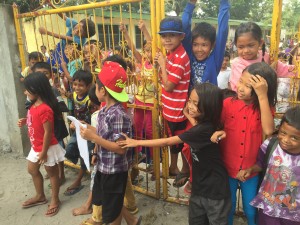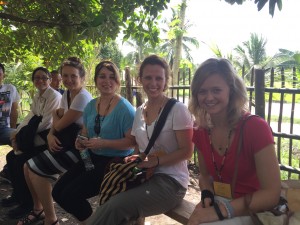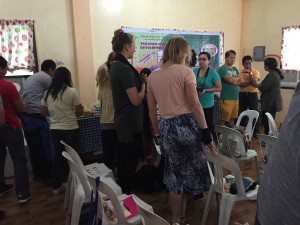It’s strange to think that only a couple of months ago I was in the Philippines meeting with communities and agencies, hearing their stories, their challenges, and hopes for a conflict free society. It is so easy to forget about a place you have visited when you become engrossed in the daily grind of graduate school. Whenever I come back from being in developing nations I am initially aware of my consumption patterns, the waste I create, and the things take for granted. Over time this awareness decreased and I go back to my western consumerist lifestyle. Mindanao is no longer on my mind they way it was before. Initially, everything I did or heard brought me back to thinking about Mindanao. During class lectures when the topic of economic development having a “trickle down” effect for impoverish communities was mentioned, I thought about the presentation we were given by MIDA (A government development agency). When there was discussion on structural violence, I thought about how the government of the Philippines has neglected the island and how its children remain malnourished in many parts of the region. When I prepared a meal, I would think about the food from the region, and how much I missed my vegetables and bland food. Food always brings me back to the meals we had in the mornings and how we would pile in the van and be off to our next destination. Especially all the food that was prepared on behalf of our visit.

I really like the fact that when I see students from the trip around campus we have an automatic connection. Seeing them brings back a flood of memories. When we are together we joke about some of the more funny things about the trip, like the horrible tiny red chairs in the Van that all of us took turns sitting in. Or the “benches” that consisted of a single 2×4 board, that we rested our bottoms on for almost 8 hours, and the cockroaches that most folks were afraid of. Had I not participated in the trip, I may never have gotten the opportunity to know most of its participants. It was great that some of the students came from different disciplines and had such different research topics. It forced me to learn about subjects that I would not have necessarily researched on my own. It is always interesting to see how others think and perceive information. I am incredibly grateful to our host organization for giving us the opportunity to meet so many different actors in the Philippines. Most important, I am grateful to my professor who provided me with this experience. I have said it once, and will say it again; the J-term course to Mindanao was the academic opportunity of a lifetime.

 never heard before. Where someone is harmed or killed due to their occupational successes. This happened to a peace school’s principal. I remember my own principal dying during my childhood, but it was not from murder. The thought never crossed my mind to ask, if there were other titles that existed to cause harm or death to another. Like many other children in the world, the children of Mindanao are resilient, incredibly intelligent, and super cute. I believe they will ultimately have a positive impact on the peace process and society.
never heard before. Where someone is harmed or killed due to their occupational successes. This happened to a peace school’s principal. I remember my own principal dying during my childhood, but it was not from murder. The thought never crossed my mind to ask, if there were other titles that existed to cause harm or death to another. Like many other children in the world, the children of Mindanao are resilient, incredibly intelligent, and super cute. I believe they will ultimately have a positive impact on the peace process and society.





